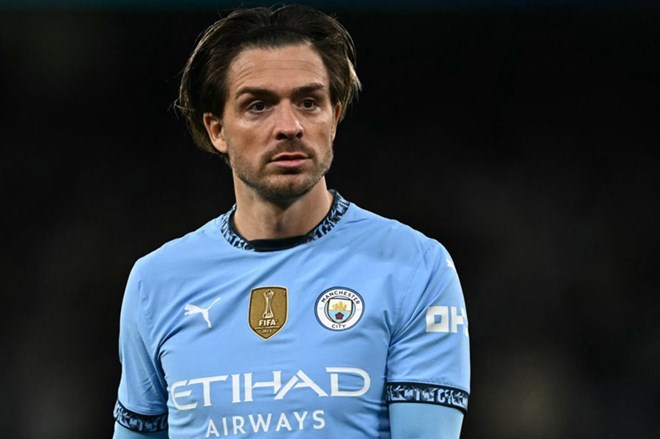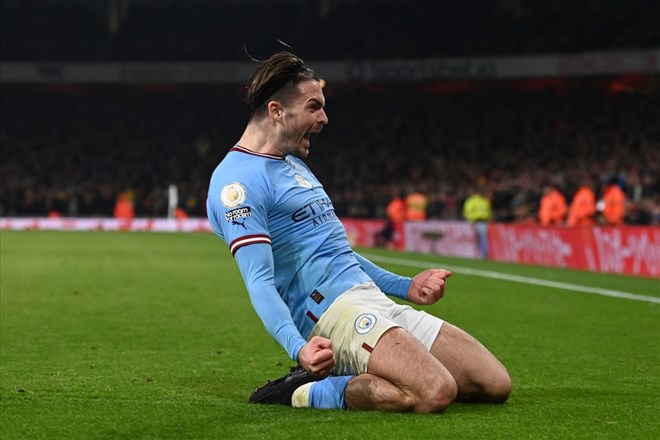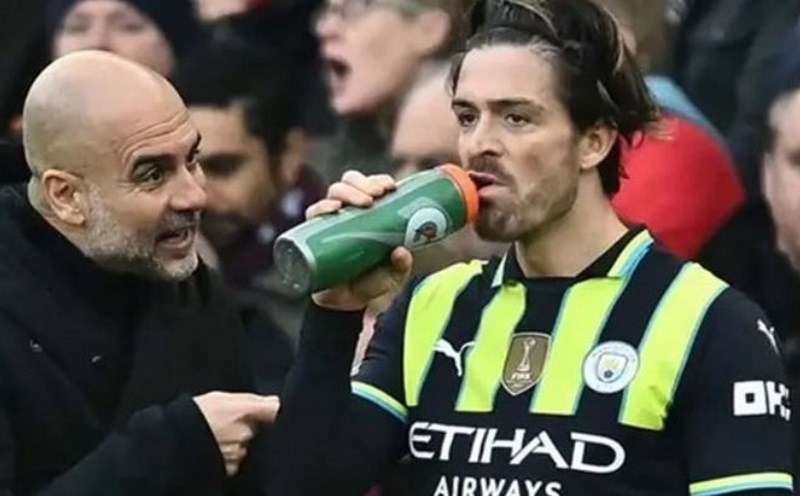Coach Pep Guardiola has sent a warning to Jack Grealish that his time at Manchester City is gradually running out.
Before the Champions League trip to Real Madrid in February, the Spanish captain challenged Grealish to maintain stable performance, and expressed hope he would do it before the end of the season. But in reality, in Guardiola's eyes, that did not happen.
The clearest proof is that Grealish had to sit out the match against Fulham in the final round of the Premier League, then continue to be removed from the list of FIFA Club World Cup 2025. That was a signal that his career at the Etihad had ended.
The Citizens wanted to sell Grealish to close the story, but when they only received a loan offer from Everton, they were ready to nod. Grealish will play for the Merseyside side until the end of the 2025-2026 season, aiming to regain the form that transformed him into a record £100 million signing in 2021.

"This is an extremely important event for me," Grealish said after the transfer deal to Everton was finalized. This was a turning point that could shape the rest of his career.
For a long time, the halo that helped Grealish shine in the Aston Villa shirt seemed to have faded. He was an important piece in the Man City squad that won the Premier League and Champions League double, along with the FA Cup, in his second season in charge. However, Guardiola has not hesitated to point to the decline he believes is significant.
"I want Grealish of the treble season" is a familiar saying that Guardiola often repeats at press conferences when asked why the English player is absent.
At one point in the 2022-2023 season, from January to May, Grealish started 21/23 Man City games, including two consecutive spells starting 9 matches. He was in the starting lineup for both Champions League semi-finals against Real Madrid, the final against Inter Milan and the FA Cup final against Man United.
Grealish is not the type of player to make explosive statistics. 5 goals and 7 assists in the Premier League are quite modest numbers for his position. However, Guardiola has appreciated the stability he has shown both on the training ground and in competition.
However, Guardiola's faith in Grealish has been eroded. Since his Champions League win in Istanbul, the English midfielder has only started 17 times in the Premier League.
Last season alone, he played only 715 minutes in the tournament - a number even lower than reserve goalkeepers Stefan Ortega and Kyle Walker.
Despite making his mark in the FA Cup games against Salford City and Plymouth Argyle, Grealish immediately returned to the bench in the next match.
"He could have played a really good game, like in the FA Cup. But it's not stable enough to play three games a week, let alone six games in two weeks," Guardiola admitted.
Without having to worry about European competitions, Everton will only play one match per week next season. They will open with a trip to new signing Leeds United - where Grealish is likely to debut, if his fitness allows.
During the holiday, he strictly followed a personal training course, but only returned to full training for a few weeks.More time will be needed for Grealish to regain his playing rhythm.
Maintaining good physical condition is a key factor, especially when Grealish still cherishes the hope of qualifying for the 2026 World Cup with England next summer.

While Guardiola has repeatedly criticized his instability, Grealish believes that a series of injuries over the past two years have prevented him from regaining his playing rhythm.
It all started with an injury to his left foot at the beginning of the 2023-2024 season, followed by hamstring problems, hips and especially serious injuries to the groin.
Those close to Grealish admitted that this instability had eroded his confidence. The constant absence and lack of physical strength to practice properly made his confidence shake, and then never really recover.
Grealish also frankly admitted that he is the type of player who needs to be on the field regularly to be able to achieve his best form.
Ironically, Guardiola insists that only players at their peak are worthy of being given regular playing opportunities. At this point, the line between cause and effect seems to have blurred.









